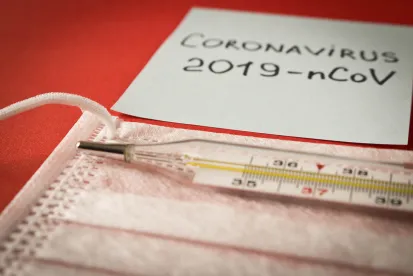As COVID-19 continues to spread rapidly across the globe, we have witnessed an unprecedented amount of altruism and goodwill across the supply chain. With a dearth of hand sanitizer, ventilators, medicine, gloves, masks, and other personal protective equipment (“PPE”) that is desperately needed to combat COVID-19, numerous businesses have rallied and responded to the call for assistance, altering their product lines to address shortages and manufacture vital products. While these initiatives are laudable, companies pivoting to Good Samaritan production should be aware of the existing legal and regulatory landscape to ensure that they comply with industry and regulatory standards. The Plaintiffs’ bar is already posting online advertisements seeking clients who are interested in pursuing product liability and other civil, and criminal, liability claims related to coronavirus treatment and care. Accordingly, even if businesses seek to help individuals survive the COVID-19 pandemic, they may unwittingly expose themselves to potential liability.
One layer of protection the federal government has afforded manufacturers and suppliers of drugs, devices, and PPE is the March 10, 2020 Declaration issued by the Secretary of Health and Human Services (“HHS”). See 85 Fed. Reg. 15198. The Declaration provides tort immunity under the Public Readiness and Emergency Preparedness Act (“PREP Act”) to entities involved in the creation or distribution of “countermeasures” to the COVID-19 virus. The types of covered “countermeasures” triggering PREP Act immunity include the production or manufacture of any drug, medicine, vaccine, or device used to treat, diagnose, cure, mitigate, or prevent COVID-19, which could potentially include PPE.
If your company is considering manufacturing or supplying such equipment to the frontline of the COVID-19 battle, the current scope of protection is as follows:
Covered Businesses. Under the Declaration, “covered persons” who cannot be sued under federal or state law include manufacturers, distributors, program planners, and qualified persons—as well as their officials, agents, and employees—who manufacture, test, develop, distribute, administer, or use “covered countermeasures.”
Covered Products. Covered “countermeasures” include not only the manufacturing of drugs and devices used to treat or prevent COVID-19, but also any device used to administer these products, and “all components or constituent materials.” This includes products and technologies designed to merely “enhance” the effects of drugs, devices, and products used in the fight against COVID-19. Immunity could thus be far-reaching, potentially extending not only to manufacturers and suppliers of PPE, but also to fabric and other material suppliers involved in the PPE supply chain.
Covered Activities. Protected activities include the manufacture, testing, development, distribution, administration, and use of covered countermeasures, subject to certain limitations, such as:
-
There must be a causal relationship to the “design, development, clinical testing or investigation, manufacture, labeling, distribution, formulation, packaging, marketing, promotion, sale, purchase, donation, dispensing, prescribing, administration, licensing, or use” of a covered countermeasure.
-
Immunity is limited to activities related to present or future federal contracts or other federal transactions or agreements, or otherwise authorized by a specified health authority with the power to prescribe, administer, deliver, distribute, or dispense covered countermeasures following an emergency declaration.
-
Countermeasures must either be approved or cleared under the Food, Drug, and Cosmetic Act (“FDCA”), or licensed under the Public Health Service Act (“PHSA”), or authorized for “Emergency Use” under applicable provisions of the FDCA. As a practical matter, this means that countermeasures remain subject to a form of pre-market approval.
-
There is no immunity for intentional torts where death or serious physical injury has occurred that was proximately caused by “willful misconduct.” The plaintiff bears the burden of proving willful misconduct by clear and convincing evidence.
-
No immunity is provided where the U.S. has no jurisdiction, unless the events occurred in a U.S. territory or there is some other connection to the U.S. that makes it reasonable to apply U.S. law.
-
Immunity presently extends only through October 1, 2024. Manufacturers have been granted an additional “12 months of liability protection,” however, to “arrange for the disposition of covered countermeasures.”
In sum, although the scope of immunity is broad, it is not unlimited. Companies should discuss with counsel whether the immunity provided under the PREP Act applies to the new products they are considering manufacturing, and whether any applicable insurance policy will provide coverage if they face a lawsuit. If a business is not adequately covered, it could face substantial exposure to product liability claims, including claims alleging marketing misrepresentations, breach of warranty, negligence, failure to warn, or consumer fraud. Companies should be especially wary of statements and claims made to the public about their product’s ability to protect against the virus, particularly where those statements may lack medical or scientific support.
The U.S. Food and Drug Administration (“FDA”) has already sent warning letters to certain companies, stating that they made false or unsupported claims about their product’s ability to protect against or treat COVID-19. Plaintiffs’ attorneys are closely monitoring these regulatory developments, and have initiated class action lawsuits based upon state consumer fraud statutes, false advertising claims, the tort of misrepresentation, and breach of warranty claims. Notably, any business in the supply chain—from the manufacturer to the supplier to the retailer—could find themselves susceptible to such claims.
Accordingly, while the federal government has provided immunity from liability for covered businesses engaging in covered countermeasures to combat the COVID-19 pandemic, it is prudent for companies to consult with counsel and carefully analyze the Declaration and PREP Act to ensure they are engaged in protected activities, and are in compliance with all applicable regulations. COVID-19 will not prevent future compliance audits, government inquiries, and other post hoc investigations on any company’s practices during this time. With careful planning, however, the Declaration should have the intended effect of encouraging businesses to design, test, manufacture, and administer drugs and devices that can treat and prevent COVID-19, making our world a safer place.





 />i
/>i

